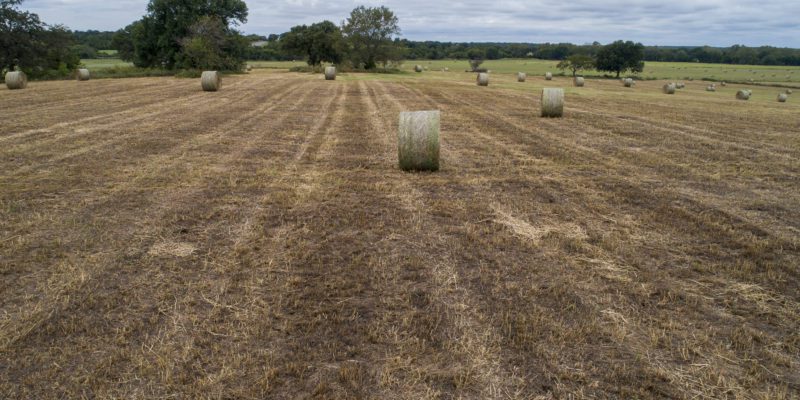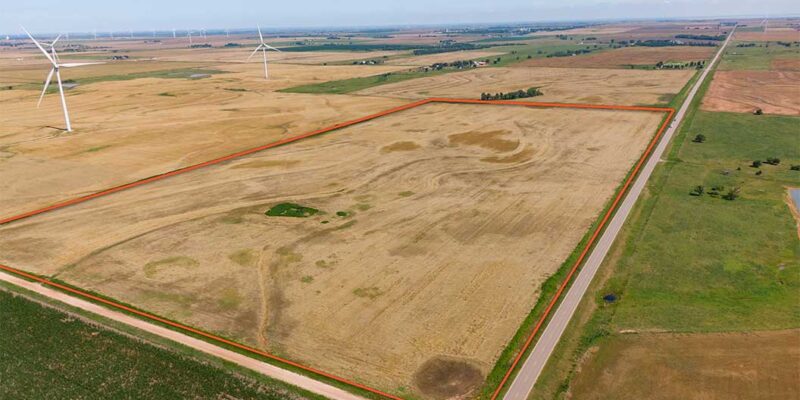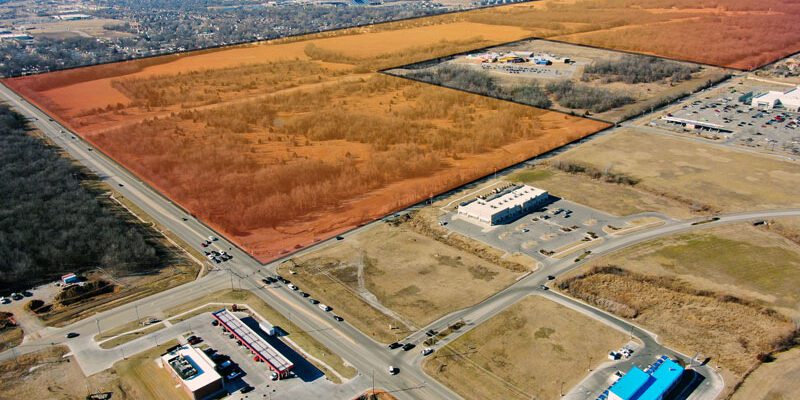Cattle ranching can be rewarding and challenging. One of the most significant challenges for many ranchers face is navigating the complexity of taxes. 1031 exchanges are a powerful tool you can put to work increasing profit while reducing your potential tax liability.
Understanding the 1031 Exchange
Named after Section 1031 of the Internal Revenue Code, a 1031 exchange allows you to sell real estate or a business then reinvest in new, “like-kind” property and defer capital gains taxes. So instead of paying taxes on the sale of a property, the profits can be reinvested into a similar but different asset, allowing you to defer paying those capital gains taxes.
Using a 1031 Exchange to Improve or Expand Your Acreage
A 1031 exchange allows you to sell your land and then use the proceeds to purchase a different piece of land without immediately paying taxes on the sale. So, you could potentially sell some or all of your existing ranch and then purchase a larger or better-located one, using the 1031 exchange to defer the taxes on the sale.
Using 1031 Exchange to Improve Herd and Equipment
Livestock and equipment are other assets that may qualify for a 1031 exchange. This means you could sell part of your herd or outdated equipment, then use the funds to invest in higher quality livestock or better equipment. By doing this, you can improve your herd quality or improve operation efficiency while postponing taxes on the profits from the sale.
Meet Jack and Will
1031 Exchange is a powerful tool
Let’s consider an example involving Jack, an Oklahoma rancher. Jack purchases a $1 million ranch and sells it several years later for $1.5 million. That’s a $500,000 capital gain tax liability. But, by utilizing a 1031 exchange, Jack invested the entire $1.5 million into a new ranch gaining more productive grazing land, rich with spring-fed ponds and healthy blue-stem, boosting his profitability and potentially better safeguarding his herd during drought years.
If Jack hadn’t used a 1031 exchange, he would face a capital gain tax liability of $123,750 – assuming a 24.75% total capital gains rate – and would only have $1,376,250 million at his disposal for the purchase of a new ranch.
1031 exchanges become increasingly remarkable as the value of the ranch continues to rise. Of course, it’s not all up-side. Anyone using a 1031 exchange must remember that there are specific rules and requirements and timelines that must be met. For example, there are strict timelines for identifying and closing on the new property. Always work with a tax, financial and/or legal professionals experienced in 1031 exchanges to ensure that you fully understand the potential risks, gains and liabilities and that all requirements are met.
The purpose of this article is to give an overview of the 1031 exchange, highlight key takeaways, and explain best practices for taking advantage of this financial tool. Learn more about in this 6-minute read:
What is a 1031 Exchange?
A 1031 Exchange, also known as a Like-Kind Exchange, is a tax deferral strategy under Section 1031 of the tax code. It allows individuals to defer capital gains on real estate profits by reinvesting the proceeds in another property of equal or greater value within a specific time frame. This exchange helps to maintain the productive use or investment nature of the property.
According to the Internal Revenue Code (IRC) Section 1.1031, if a real property is exchanged solely for real property of like kind, no gain or loss will be recognized. This means that the tax burden is deferred as long as the property is reinvested in another qualifying property. For more information on this beneficial strategy, you can refer to the Real Estate Tax Tip article on IRS.gov. It provides detailed insights into Like-Kind exchanges and their implications.
Benefits of a 1031 Exchange
Beyond the capital gains tax deferral that a 1031 Exchange can accomplish, there are several other reasons why astute investors favor this financial tool. The primary advantage of a 1031 Exchange is the ability to defer capital gains taxes. Through the “like-kind” clause of a 1031 Exchange, the up-leg property must be of the same nature (meaning it must be an investment real estate asset). Like-kind is often misinterpreted as meaning the up-leg property must be the same asset class (multifamily, industrial, net lease retail, office, etc.) as the down-leg property; however, that is not the case. Below are more advantages to executing a 1031 Exchange.
A 1031 Exchange offers various benefits that extend beyond deferring capital gains tax. While the primary advantage is the ability to defer taxes, there are other reasons why ranchers, farmers, landowners and investors favor this financial tool. The “like-kind” clause of a 1031 Exchange requires the up-leg property to be of the same nature, typically an investment real estate asset. Contrary to common misconception, it does not necessitate the same asset class as the down-leg property (e.g., agribusiness, raw land, multifamily, industrial, net lease retail, office). 1031 Exchange benefits include:
Off-Load Management Responsibility
Certain assets can become burdensome due to high maintenance costs, property taxes, insurance, and the need for employees. However, investors have the option to ease their workload by exchanging these properties for less time-intensive assets, allowing them to generate passive income. For instance, if a multifamily owner feels overwhelmed by property responsibilities, they can consider exchanging it for a net lease retail asset that requires minimal involvement.
Consolidate or Separate Assets
One of the exciting possibilities offered by a 1031 Exchange is the ability for investors to enter new markets in the U.S. with high growth potential. Let’s say an owner has an investment property in a highly appreciated market, such as California. With a 1031 Exchange, they could exchange that property for multiple properties in more affordable states, optimizing their cash flow. Additionally, investors can take advantage of income-tax-free states to avoid double taxation (although it’s important to note that some states require investors to pay state capital gains tax.
Depreciation Reset
A 1031 Exchange also provides investors with the opportunity to “reset” the depreciation schedule to a higher value by purchasing a property of greater worth. This strategy presents a significant tax benefit and serves as a valuable tool for increasing after-tax cash flow. It is especially beneficial for those who have fully depreciated their investment and are seeking ways to maximize their financial returns.
Grow Equity and Holdings
The 1031 Exchange is a powerful tool for investors looking to diversify their portfolio and generate higher returns. This tax deferral strategy allows investors to strategically realign their investment goals by exchanging one property for another or into multiple properties of higher value. By doing so, investors can lower their risk profile and minimize exposure to market disruptions.
Step-Up Cost Basis
Another key benefit is the step-up in cost basis that heirs receive when a real estate owner passes away. This means that the heirs inherit the property at its fair market value at the time of death. Not only does this eliminate the depreciation recapture and capital gains tax liabilities, but it also presents an opportunity for owners to exchange into a larger asset while they are still alive, effectively eliminating any built-in gain when passed through to heirs.
1031 Exchange Considerations
While the allure of avoiding capital gain taxes is appealing, there are important factors to consider when deciding if a 1031 Exchange is the right investment strategy. Let’s dive into these considerations and gain a better understanding:
Timelines
In cases where simultaneous closing is not possible (i.e., when the proceeds from the sale cannot be directly invested into the replacement property), investors have the option to delay the purchase of the replacement property. To take advantage of this option, investors must adhere to certain timelines:
- Replacement properties must be identified within 45 days of closing.
- Pruchase of replacement property must be made within 180 days of closing.
Failure to meet these deadlines can result in the proceeds from the initial sale being subject to capital gains taxes. To navigate these timelines effectively, a qualified intermediary assists you as they document and manage the process.
Capital Gains
Although a 1031 Exchange is touted as a tax deferral strategy, it’s crucial to note that taxes on capital gains still need to be paid. While federal codes are generally followed by most states, it’s essential to be aware of any state taxes applicable to the exchange property. For instance, Texas might be an income tax-free state, but it compensates with a higher property tax rate of 1.8 percent.
Taxed on the Boot
If the identified replacement property is valued lower than the property being sold (after deducting ordinary transaction expenses), capital gains taxes must be paid. Additionally, accumulated depreciation is recaptured through the difference in the prices of the properties, commonly referred to as the “boot.”
Difficulty Identifying Like-Kind Properties
Finding a property that aligns with an investor’s goals can be challenging, especially within the limited timeframe of 45 days. Failing to identify a replacement property forces the investor to pay taxes on the full gain from the initial sale. To avoid this situation, it is imperative to work with a qualified broker from a reputable firm.
Qualified Intermediary
Whether you are a seasoned or first-time investor, professional advisors are crucial to navigate the intricacies of fees and regulations. Investors are required to hire a Qualified Intermediary (QI) who will facilitate the 1031 Exchange process.
Professional Guidance
Executing a 1031 exchange involves a complex set of rules and timelines that must be strictly adhered to. Restrictions are imposed on exchanging into properties with the intention of selling them for quick profits. No limit is set on the number of 1031 Exchanges one can execute however, from the date of sale of the original property, the seller has 45 days to identify potential replacement properties and 180 days to close on the purchase of the new property.
Rules can be murky. For example the IRS does not specify a minimum holding period but, holding onto the property for less than two years may trigger a “dealer status” designation and invite closer scrutiny from the IRS.
Given these complexities, it’s crucial that cattle ranchers work with a professional experienced in 1031 exchanges. Such professionals can provide invaluable guidance and help ranchers navigate the process successfully and legally.
Conclusion
A 1031 exchange can be a strategic tool for ranchers, allowing them to boost their profits and reduce tax liability. By reinvesting the gains from sales into “like-kind” properties or assets, ranchers can defer capital gains taxes and reinvest more of their money back into operations. While there are several advantages, it’s essential to remember that 1031 Exchanges only defer capital gains taxes, and they will still need to be paid. Help yourself thoroughly understand potential liabilities by always seeking guidance from qualified tax and financial advisors able to provide professional guidance through the full process.









